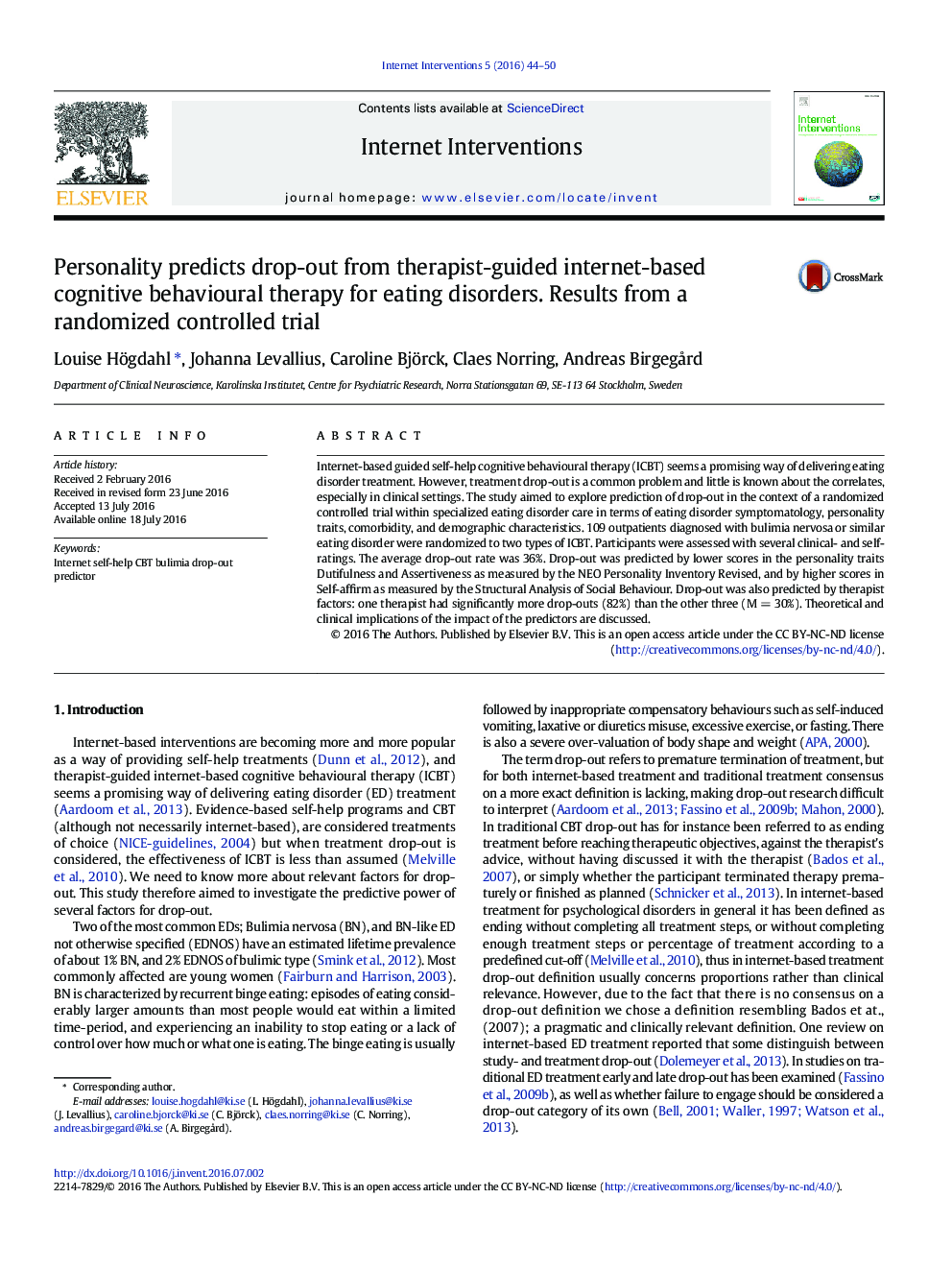| Article ID | Journal | Published Year | Pages | File Type |
|---|---|---|---|---|
| 555402 | Internet Interventions | 2016 | 7 Pages |
Internet-based guided self-help cognitive behavioural therapy (ICBT) seems a promising way of delivering eating disorder treatment. However, treatment drop-out is a common problem and little is known about the correlates, especially in clinical settings. The study aimed to explore prediction of drop-out in the context of a randomized controlled trial within specialized eating disorder care in terms of eating disorder symptomatology, personality traits, comorbidity, and demographic characteristics. 109 outpatients diagnosed with bulimia nervosa or similar eating disorder were randomized to two types of ICBT. Participants were assessed with several clinical- and self-ratings. The average drop-out rate was 36%. Drop-out was predicted by lower scores in the personality traits Dutifulness and Assertiveness as measured by the NEO Personality Inventory Revised, and by higher scores in Self-affirm as measured by the Structural Analysis of Social Behaviour. Drop-out was also predicted by therapist factors: one therapist had significantly more drop-outs (82%) than the other three (M = 30%). Theoretical and clinical implications of the impact of the predictors are discussed.
